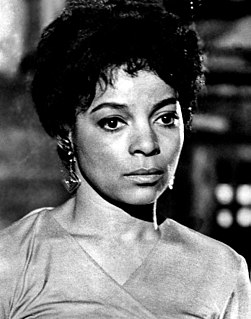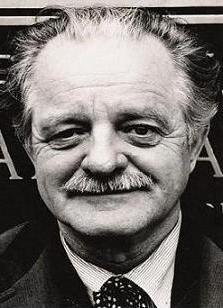A Quote by Ralph Keyes
Willa Cather said that she write best when she stopped trying to write and began simply to remember.
Related Quotes
My mother - my stepmother, really, she herself have been what they call an elocutionist. And she was the one who first encouraged me to write poetry, because she used to read it to us. And then when I began to write when I was nine years old, my first poem was published in the Amsterdam News. I called it "The Graveyard."
Dave and I had been song writers in Nashville, trying to get around, out hustling, trying to meet people. We randomly met Hillary out in town one night. She said she was a singer. I asked her if she would like to write some songs with Dave and me, and a week later she came over. Instantaneously we had this chemistry.
In seventh grade I had a magical teacher, her name was Mrs. Fried. She wore only pink, she drove a pink Mustang, and she was half out of her head. But very inspiring. And one day she said, "Take out a paper and pen and write something about peace." For some reason I wrote a poem on Noah - I don't know why I chose Noah - and it turned out it was for a contest for the UN. I ended up winning and reading the poem in front of the UN. I remember Mrs. Fried telling me, "When you write your first book, dedicate it to me." That was like, "Whoa."
My teachers always said, "You're very talented, but don't set your heart on art. You're only a girl." I was inspired by Virginia Woolf in 1960, but they wouldn't let me write about her. They said she was a trivializer. I also wanted to do a paper on Simone de Beauvoir, and my philosophy teacher said, "Why would you write about the mistress? Write about the master." That was Sartre.
When asked how she knows when her writing is where she wants it to be: "I know when it's the best I can do. It may not be the best there is. Another writer may do it much better. But I know when it's the best I can do. I know that one of the great arts that the writer develops is the art of saying, 'No. No, I'm finished. Bye.' And leaving it alone. I will not write it into the ground. I will not write the life out of it. I won't do that."
My mother hid the struggle from us children. She complained about her salary, and she had a tough time. Although she became a headmistress, she still had to do a lot of sewing. The more I think about her, the more remarkable I realise she was. And she understood straight away when I said that I wanted to write.
She realized how many of her beliefs were either unrealistic or belonged to her deceased parents and her ex-husband. She also realized that her expectations for herself and others were sometimes too rigid. She was trying to live up to what everyone else said was best for her, which made her depressed and hard to be around at times. Once she changed her beliefs about herself and others, she began to smile more and enjoy life.
So you got rid of your astonishment that someone could write so much more dynamically than you. You stopped cherishing your aloneness and poetic differentness to your delicately flat little bosom. You said: she's to good to forget. How about making her a friend and competitor — you could learn alot from her. So you'll try. So maybe she'll laugh in your face. So maybe she'll beat you hollow in the end. So anyhow, you'll try, and maybe, possibly, she can stand you. Here's hoping!
The techniques are all means of dealing with one simple idea: She wrote it. (That is, the "wrong" person--in this case, female--has created the "right" value--i.e., art.)
Denial of Agency: She didn't write it.
Pollution of Agency: She shouldn't have written it.
Double Standard of Content: Yes, but look what she wrote about.
False Categorizing: She is not really she [an artist] and it is not really it [serious, of the right genre, aesthetically sound, important, etc.] so how could "she" have written "it"?
Or simply: Neither "she" nor "it" exists (simple exclusion).
She glared at me like she was about to punch me, but then she did something that surprised me even more. She kissed me. "Be careful seaweed brain." She said putting on her invisible cap and disappearing. I probably would have sat there all day, trying to remember my name, but then the sea demons came.

































